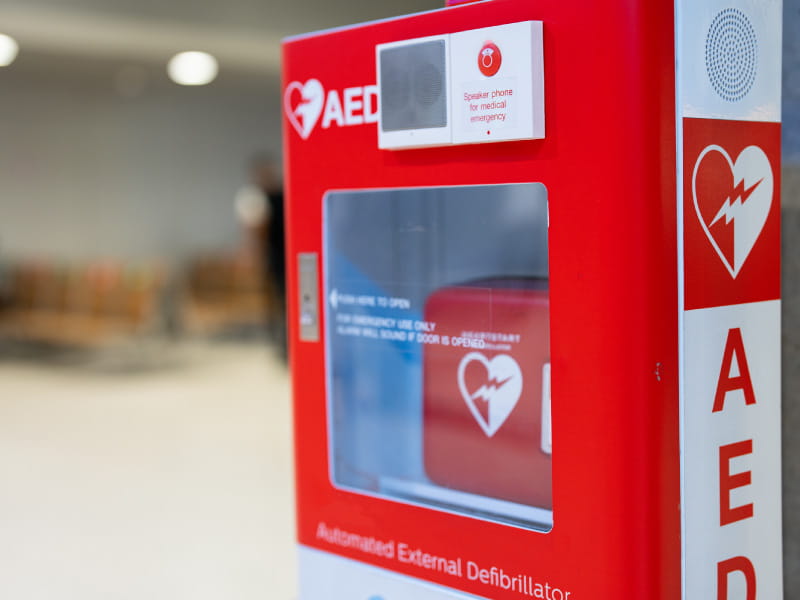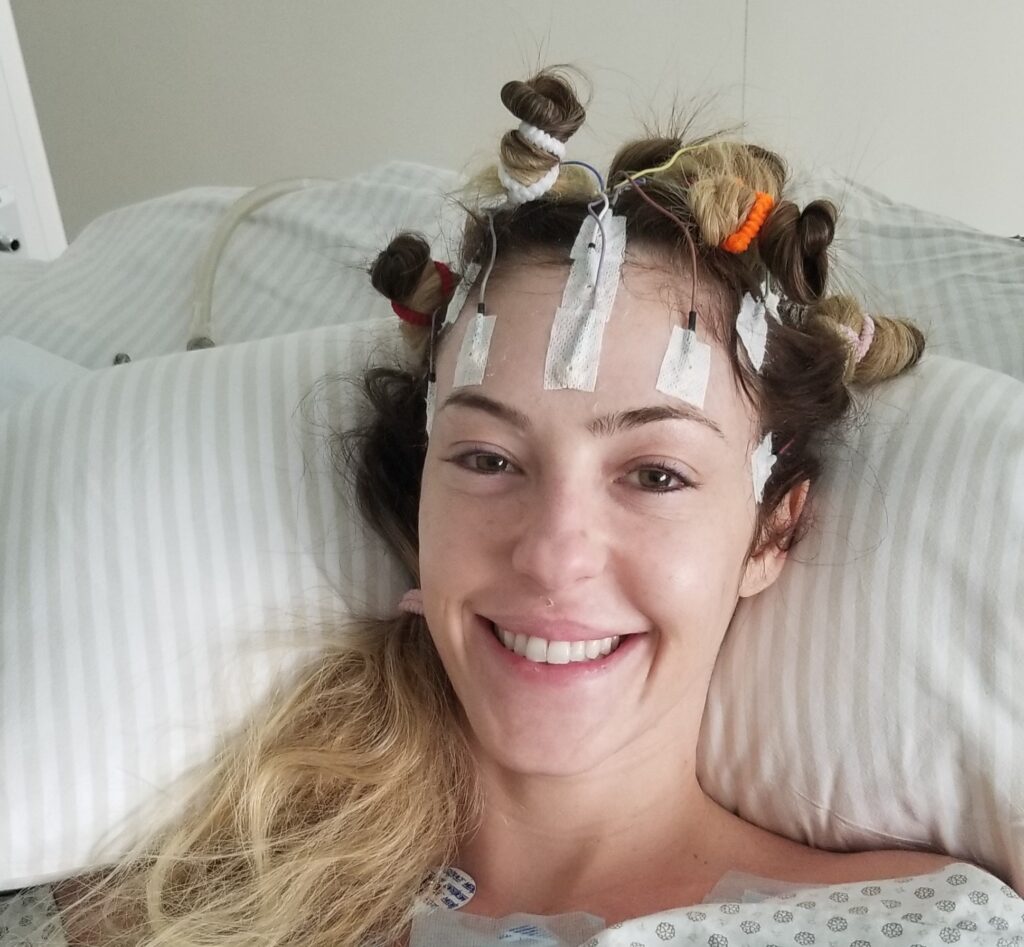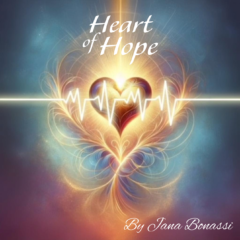⚡️ Why Brazil Needs More AEDs Now
I’ve spoken about CPR thousands of times. I’ve written about it, posted about it, cried over it, taught it and fought for it (check it all on my Instagram). Yet the message never grows old—because every day, somewhere, a heart suddenly stops… and someone’s world changes forever.
That someone was me.
That moment was January 1st, 2019.
And that “someone” who stepped up to save me was my husband.
🫀 Seconds That Meant Survival
When my heart went into sudden cardiac arrest at a resort in Brazil, I was clinically dead. No pulse. No breath. My husband Ricardo immediately began CPR, desperately fighting to bring me back. Minutes felt like hours. My family ran in all directions searching for help. But the moment that changed everything was when a hotel staff member arrived with an AED (Automated External Defibrillator).
That machine—a small box with shocking power—identified a deadly rhythm called ventricular fibrillation and delivered a shock.

Example of an AED in public places – you should be aware of it everywhere you go!
(Jackyenjoyphotography/ Moment via Getty Images)
That shock restarted my heart. But CPR and the AED didn’t just save my life—they saved my brain.
🧠 The Difference Between Life and a Life Worth Living
In Heart of Hope, my husband recounts how, even after my heart was beating again, no one knew if I would ever speak again… remember my daughters… or recognize my family.
Had the AED arrived even minutes later, the oxygen deprivation could have caused permanent brain damage. The CPR he performed kept blood flowing just enough to preserve my brain, and the AED restored a heartbeat just in time.
My brain being closely monitored while recovering in the hospital

📉 Brazil’s Urgent Reality
Brazil is a beautiful, vibrant, continental-sized country. But our size is also our challenge. Most Brazilian public spaces still don’t have AEDs, and the population isn’t widely trained in CPR.
According to the Sociedade Brasileira de Cardiologia (SBC), one Brazilian dies every 90 seconds from cardiovascular disease—that’s over 400,000 lives lost every year.¹
In cases of sudden cardiac arrest, survival drops by 10% for every minute without defibrillation.²
Without AED access, survival—with quality of life—is almost impossible.
💡 It’s Time for a New Reality
We must stop treating AEDs as exclusive medical devices for hospitals and ambulances. We need them at malls, schools, churches, gyms, beaches—everywhere life happens. Heck, even the name defibrillator might be something we need to review! It can intimidate bystanders…
Brazil doesn’t just need more CPR training.
Brazil needs more AEDs. Whether in number, easier regulations, technology for sharing, the current access is unacceptable.
Because survival shouldn’t mean a life of sequels or silence.
Because I survived.
And now I speak—for those who didn’t.
Let’s give more families a chance to hold on to their loved ones. Would you join me in this fight?
Yours truly,
Jana Bonassi Cardiac Arrest Survivor | Author | Advocate
Sources:
¹ Sociedade Brasileira de Cardiologia (SBC), 2023
² American Heart Association (AHA): “Chain of Survival,” 2023

Leave a Reply